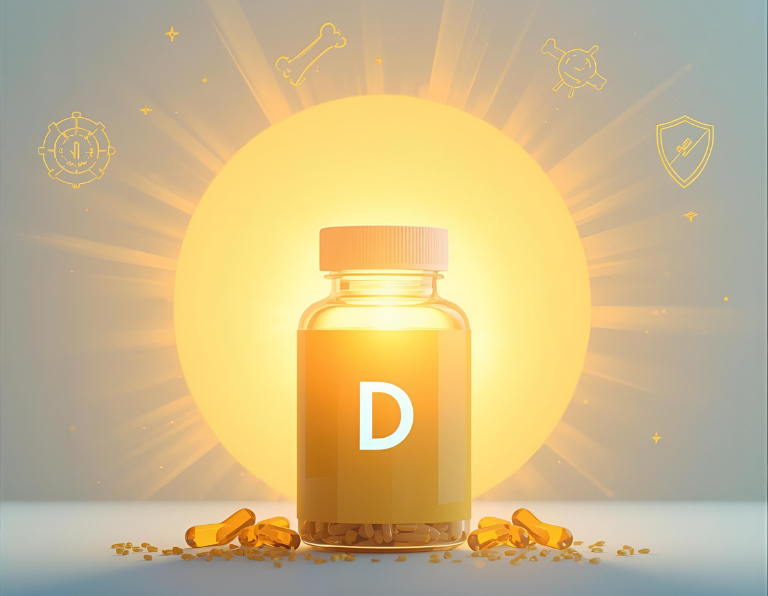The Top 5 Nutrients You Might Be Missing in Your Daily Diet
Although people are becoming more aware of healthy eating, we’re still surrounded by a modern diet filled with unhealthy junk food. With work being more hectic, we often have little time to prepare meals properly, which has sadly led to a nutrient gap caused by consuming foods that are high in some types of nutrients and low in others. For example, on days when you eat a burger or pizza, you’re likely consuming too much sodium, calories, carbohydrates, cholesterol, and saturated fats, while not getting nearly enough vitamins (C, A, E, K), fiber, omega-3 fatty acids, magnesium, iron, or even calcium. These nutrients are essential for brain health, energy, sleep, oxygen transport, and digestive health, so skipping them is not an option.
- Vitamin D: The Sun’s Vitamin
Vitamin D plays a huge role in keeping our bones healthy, supporting the immune system, and boosting our mood. Many of us work indoors, which contributes to a deficiency in vitamin D. This is especially true in the Middle East, where modest clothing and regular use of sunscreen to prevent skin cancer and aging limit sun exposure. Although fatty fish, egg yolks, mushrooms, red meat, and liver provide vitamin D, they often don’t provide sufficient amounts. That’s when supplements come to the rescue.
- Omega-3 Fatty Acids: Brain and Heart Boosters
Omega-3 fatty acids are crucial for your brain and heart health, regardless of your age. They play a vital role in emotional and physiological well-being, reducing inflammation, and keeping your heart healthy. You can find omega-3s in fish like salmon and mackerel, but not everyone enjoys seafood, and even those who do often don’t eat it frequently enough. While flaxseeds, chia seeds, and walnuts are good plant-based sources, they may not meet your entire needs. To bridge that gap, omega-3 supplements can be a reliable option.
- Magnesium: Strong Muscles and Better Sleep
Magnesium is a mineral that aids in energy production, muscle function, and improving sleep quality. Foods like leafy greens, nuts, seeds, and whole grains are excellent sources. However, stress and certain medications can reduce magnesium levels, making it essential to replenish them regularly.
- Iron: Oxygen Transporter
Iron is vital for making hemoglobin, the protein that carries oxygen through your blood. Without enough iron, you may feel tired, weak, dizzy, or even develop anemia. Women, vegetarians, and vegans are particularly susceptible to reduced iron levels. Foods like red meat, chicken, beans, lentils, and fortified cereals are great sources. Pairing iron-rich foods with Vitamin C (like orange juice) can boost absorption. For severe deficiencies, a supplement might be necessary until your iron stores are replenished.
- Fiber: Digestion’s Hero
Fiber is essential for maintaining intestinal health and regulating blood sugar and cholesterol levels. Yet, many people don’t get enough fiber in their daily diet. Good sources include whole grains, fruits, vegetables, legumes, and nuts. To maximize benefits, gradually increase your fiber intake while drinking plenty of water to help your body adjust.
Tips for Getting More Nutrients
- Meal prep and be mindful while grocery shopping.
- Avoid processed foods.
- Supplements can help if you’re still deficient, but always consult your doctor first.
Conclusion
Nutrient deficiencies are common in today’s fast-paced world, but with mindful eating and regular checkups, you can reach your full potential in health and energy. Boost your immunity, stay energetic like a child, and prevent age-related diseases in the future
![pp[85] pp[85]](https://sofilife.net/wp-content/uploads/2025/02/pp85-1-e1739193629339.png)



